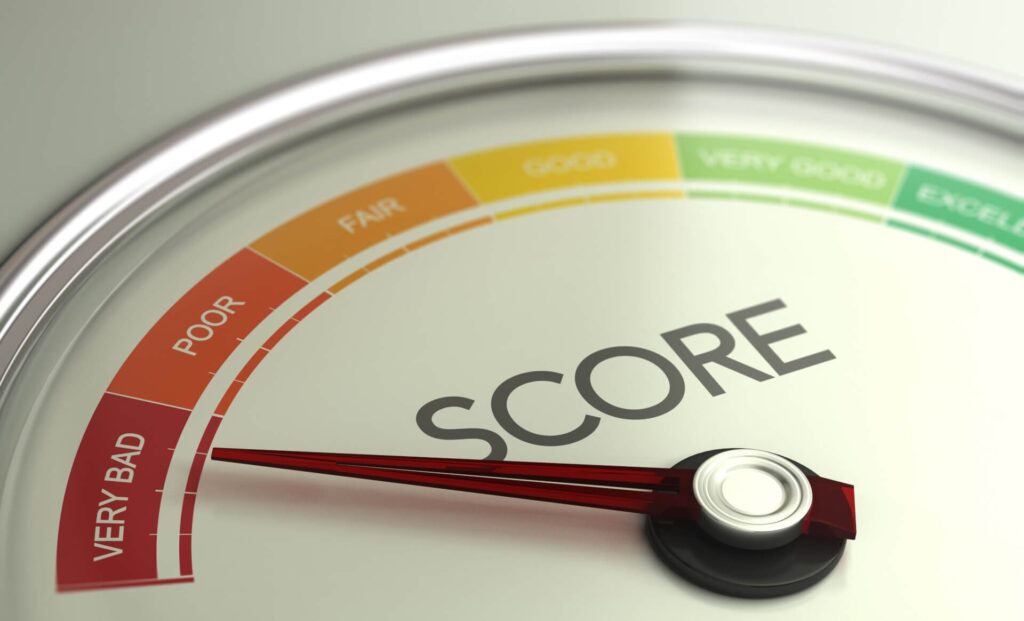Understanding Debt Consolidation
Debt consolidation is like merging all your scattered debts—credit cards, personal loans, and other outstanding balances—into one neatly packed loan. But is this a wise move for those with bad credit? Let’s dive in.

Debt consolidation aims for simpler, faster repayment by creating one singular debt from many. It’s like putting all your laundry into one big basket to juggle fewer loads. For someone with multiple payments and interest rates pulling their finances in different directions, consolidation could be a game-changer.
Here’s the deal: consolidation could potentially lower your overall interest rate, meaning you’re not spending a fortune on interest. However, for someone with bad credit, securing a lower rate might be challenging. Those with a credit score that’s just a bit bruised, not completely shattered, stand a better chance at getting interest rates that won’t burn their wallets.
A debt consolidation loan allows you to pay off multiple debts and replace them with a single one. This doesn’t just tidy up your financial landscape; it may also speed up the repayment process. But remember, you still need to chip away at that consolidated amount diligently.
It’s possible to consolidate your debt even if your credit score isn’t stellar. Many lenders, particularly credit unions and online lenders, might see potential where others just see risk. However, be prepared for upfront costs like origination fees and balance transfer costs. These expenses can be significant, so ensure they don’t overshadow the benefits you’re hoping to gain.
While credit scores do take a minor hit from the hard inquiry that comes with applying for new credit, consolidation may actually boost your score over time if you maintain disciplined payment behavior.
For those corralling debt, tread carefully. Debt consolidation isn’t a magic wand—it requires a solid repayment plan, consistent budgeting, and occasional splurging restraint. Stick to these, and you might just find yourself on the right track.
Pros and Cons of Debt Consolidation
Consolidating debt can simplify your financial life, much like pinning all your browser tabs into one neat space. Fewer bills to worry about each month, potentially with less interest eating away at your paycheck. Sounds appealing, right?
Pros:
- Potentially lower interest rates
- Simplified payments
- Possible credit score improvement over time
Cons:
- Upfront costs (origination fees, transfer fees)
- Temporary credit score dip from hard inquiry
- Qualification challenges for those with bad credit
The glittery part of debt consolidation: potentially lower interest rates. For folks with bad credit, scoring a lower rate might require some savvy negotiations. If you manage to snag a rate that doesn’t scream “highway robbery,” you’re saving money that can go towards other financial goals.
Another perk is simplified payments. Rather than juggling multiple due dates, it’s all conveniently zipped into one. It’s as much about freeing cognitive resources as it is about saving dollars.
But let’s not don those rose-colored glasses just yet—debt consolidation comes with caveats. Upfront costs like origination fees and possible transfer fees might eat into your newfound savings, so keep those in check. You might also face a mini-confidence test with a hard credit inquiry, which could temporarily shake up your credit score.
Qualifying for that sweet consolidation offer isn’t a walk in the park if your credit is facing a few bumps and bruises. It’s like a job interview; you better come prepared.
Something else to consider—if your underlying financial habits are less than disciplined, all you’re doing is giving yourself more rope to trip over. Consolidation doesn’t come with a financial fairy godmother, so remember: just because you’ve tidied things up doesn’t mean you can overindulge in a credit-card-happy splurge fest.
If you can commit to a structured repayment strategy, you can handle the financial curveballs and perhaps emerge with a healthier credit profile. Remember, consolidation is a financial tool, not a secret escape hatch. Use it wisely, and it could be your saving grace.
Evaluating if Debt Consolidation is Right for You
Ready to tackle the big question: Is debt consolidation your golden ticket, or just a fancy label on a potential financial timeout? Let’s break it down point-by-point to see if you’re ready for this financial move.
Key Factors to Consider:
- Credit Score: If your score is at least 670, you’re probably in good shape to snag those attractive interest rates. Anything below, and you might face less favorable terms.
- Consistent Cash Flow: Debt consolidation demands reliable income to ensure that monthly payment doesn’t get sidetracked by impromptu expenses or tempting splurges.
- Interest Rates: Your consolidation loan should ideally come with a friendlier rate than your current debts. Otherwise, what’s the point? The aim is to cut those interest payments down to size, freeing up some cash for other financial goals.
- Fixed Repayment Schedule: Are you a planner or more of a go-with-the-flow type? A fixed schedule means predictable payments each month—no nasty surprises. If routine frightens you, this might be a hard stop.
- Financial Habits: If you tend to leap before you look or silently hope for a financial bail-out, tread cautiously. Debt consolidation isn’t about slacking off responsibility; it’s about managing your financial obligations more effectively.
So, does your situation fit the bill? Make sure you chalk out a strategy methodically and with utmost preparation. Nail down those interest rates, enforce a strict payment regime, and never let your credit score go unattended. Because at the end of the day, consolidation can hurt or heal—and wouldn’t you rather it stitched you up like a well-deserved financial medal?
Debt consolidation is a tool, not a miracle cure. The key takeaway? It’s about restructuring your financial obligations into something manageable, not escaping them. Approach it with clear goals and disciplined habits, and you might just find yourself in a more stable financial position.
